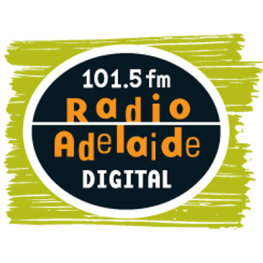
Radio Adelaide licence transferred to Educational Broadcasters Adelaide Inc (EBA)
The Australian Communications and Media Authority (ACMA) has approved the transfer of Radio Adelaide's licence from the University of Adelaide to Educational Broadcasters Adelaide Inc (EBA).
The approval comes following consideration by the ACMA of key aspects of the proposed transfer including ensuring that educational community of Adelaide will continue to be served, engaged with, and provided opportunities to participate in the operations and programming of the radio service.
Further details on this are provided below, and additional information is available from the ACMA: Emma Rossi, Media Manager, (02) 9334 7719, 0434 652 063 or [email protected].
The University now has 90 days to transfer the licence to EBA.
Key considerations in Radio Adelaide's licence transfer
- The University represents the educational community interest in the Adelaide RA1 licence area and EBA will represent the same community interest.
- The University and EBA provided copies of a membership policy and a community participation policy to the ACMA. These policies indicate that, at a minimum, the five universities in the licence area will have the opportunity to participate in the operations and programming of the service, to the same extent currently enjoyed by the University of Adelaide. Accordingly, the ACMA was satisfied that the educational community in the licence area will be able to continue to participate in the operations and programming of Radio Adelaide.
- The University and EBA provided written assurance to the ACMA that EBA will develop and provide a community consultation strategy and a structured engagement program by 1 March 2017, for implementation from that date.
Backgrounder
- In January 2016, the University of Adelaide made an announcement regarding its intention to transfer Radio Adelaide's licence to another organisation.
- In March 2016, it was announced by the The University of Adelaide that it would enter an agreement with Fresh 92.7 to secure a future for Radio Adelaide as an independent community radio station.
- In June 2016, Rob Popplestone joined Radio Adelaide as General Manager.
More on Licence Transfers
Community broadcasting services differ from other broadcasting services in that they have a community focus and are required to encourage members of the community they represent to participate in the operations of the service and in the selection and provision of programs. Under the Broadcasting Services Act 1992, community broadcasting licensees are required to comply with the licence condition to this effect at Part 5 of Schedule 2 to the BSA.
The BSA provides for licensees to apply for the transfer of a community broadcasting licence. To assist licensees understand the intent of the licence transfer mechanism, the ACMA has developed Community Broadcasting Licence Transfer Guidelines.
The ACMA may only approve the transfer of a licence if:
- the proposed transferee is a company eligible to be allocated such a licence in the first place, i.e.:
- it is the type of corporate entity that may apply to be allocated a licence
- it represents a community interest
In considering a transfer application, the ACMA generally assesses a proposed transferee against relevant section 84(2) criteria. This is to ensure the statutory scheme for community broadcasting services is not compromised.
The ACMA also reviews any other relevant matters, either generally or in that particular case. Even if the ACMA is satisfied that all the legal requirements are met, it has an overall discretion to refuse to approve the transfer of a licence.
Facebook comments